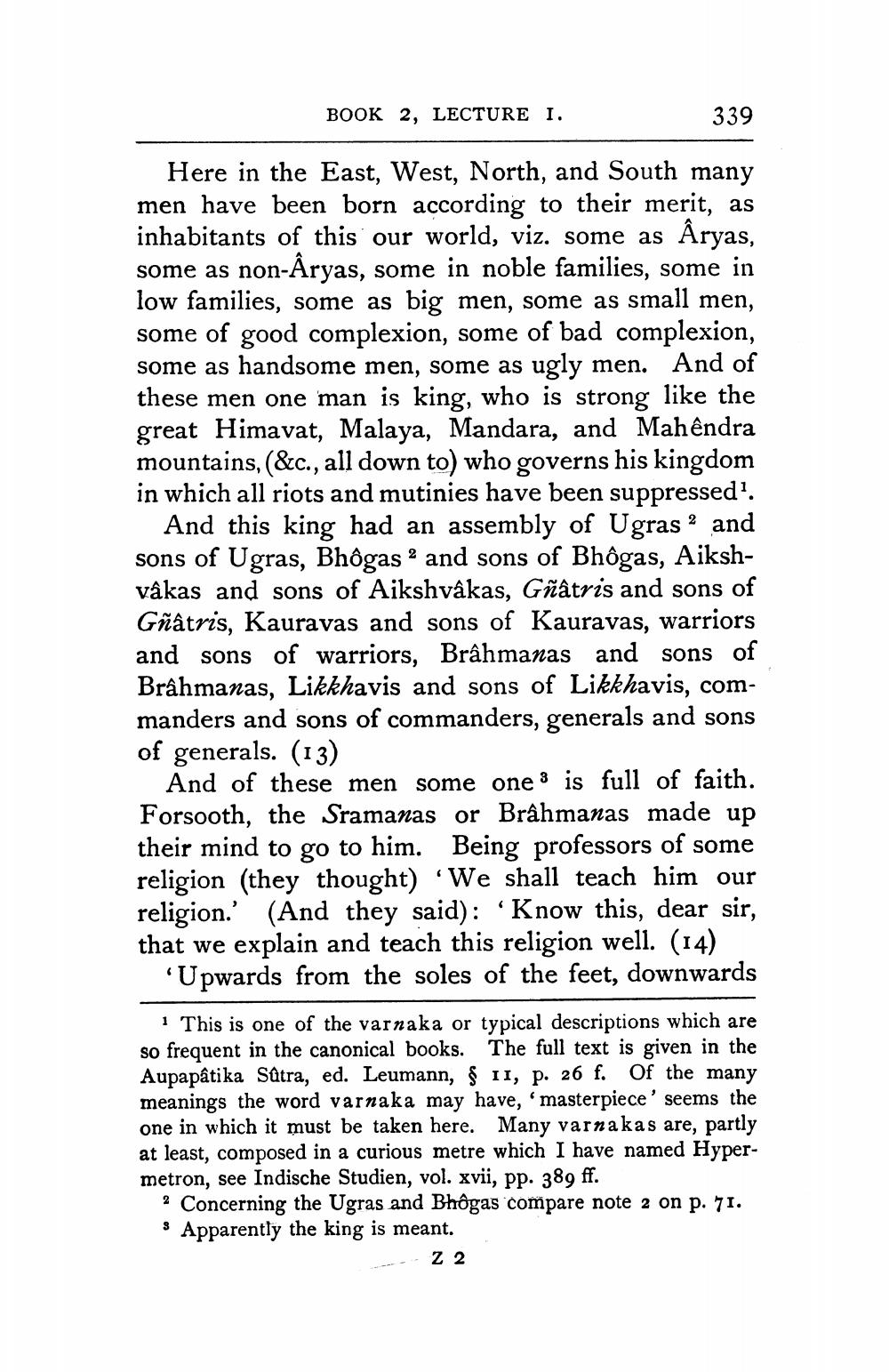________________
BOOK 2, LECTURE I.
339
Here in the East, West, North, and South many men have been born according to their merit, as inhabitants of this our world, viz. some as Aryas, some as non-Âryas, some in noble families, some in low families, some as big men, some as small men, some of good complexion, some of bad complexion, some as handsome men, some as ugly men. And of these men one man is king, who is strong like the great Himavat, Malaya, Mandara, and Mahendra mountains, (&c., all down to) who governs his kingdom in which all riots and mutinies have been suppressed?.
And this king had an assembly of Ugras 2 and sons of Ugras, Bhôgas 2 and sons of Bhôgas, Aikshvâkas and sons of Aikshvâkas, Gñâtris and sons of Gñâtris, Kauravas and sons of Kauravas, warriors and sons of warriors, Brâhmanas and sons of Brâhmanas, Likkhavis and sons of Likkhavis, commanders and sons of commanders, generals and sons of generals. (13)
And of these men some one 3 is full of faith. Forsooth, the Sramanas or Brâhmanas made up their mind to go to him. Being professors of some religion (they thought) 'We shall teach him our religion.' (And they said): “Know this, dear sir, that we explain and teach this religion well. (14)
Upwards from the soles of the feet, downwards
1 This is one of the varnaka or typical descriptions which are so frequent in the canonical books. The full text is given in the Aupapâtika Sätra, ed. Leumann, § 11, p. 26 f. Of the many meanings the word varnaka may have, masterpiece' seems the one in which it must be taken here. Many varnakas are, partly at least, composed in a curious metre which I have named Hypermetron, see Indische Studien, vol. xvii, pp. 389 ff.
? Concerning the Ugras and Bhôgas compare note 2 on p. 71. & Apparently the king is meant.
22




